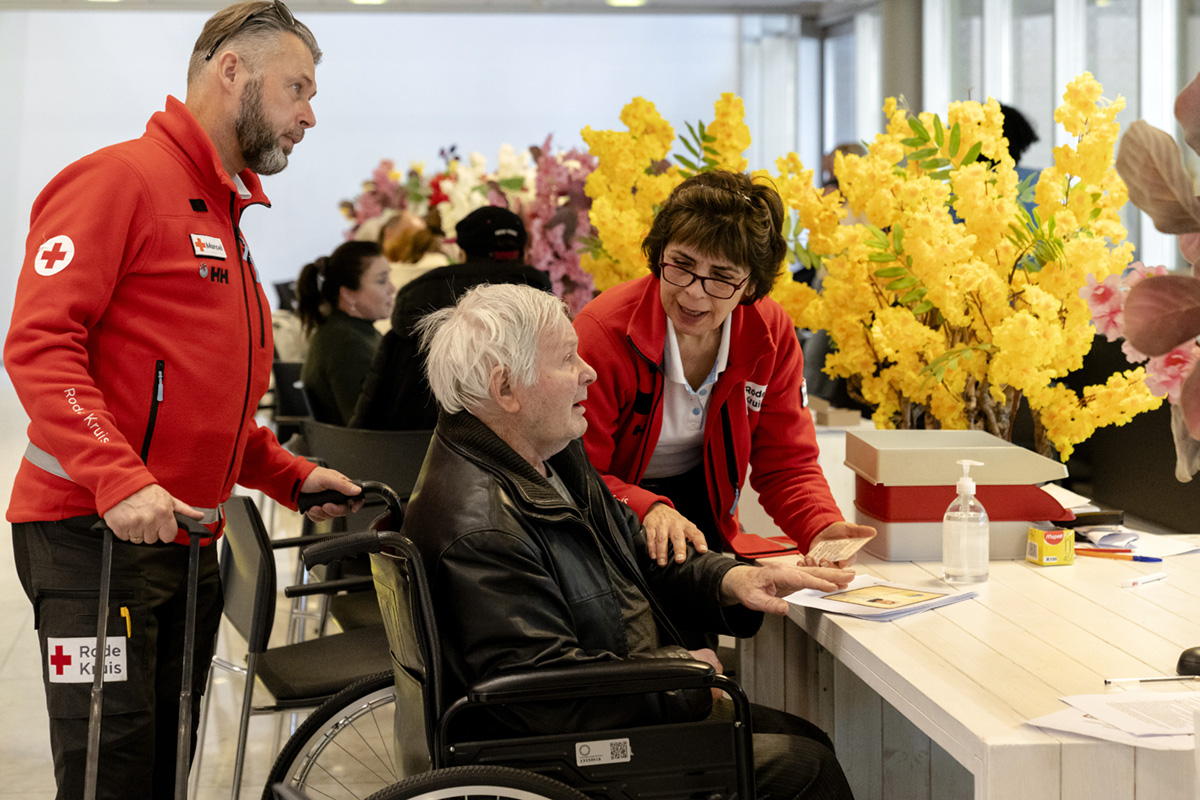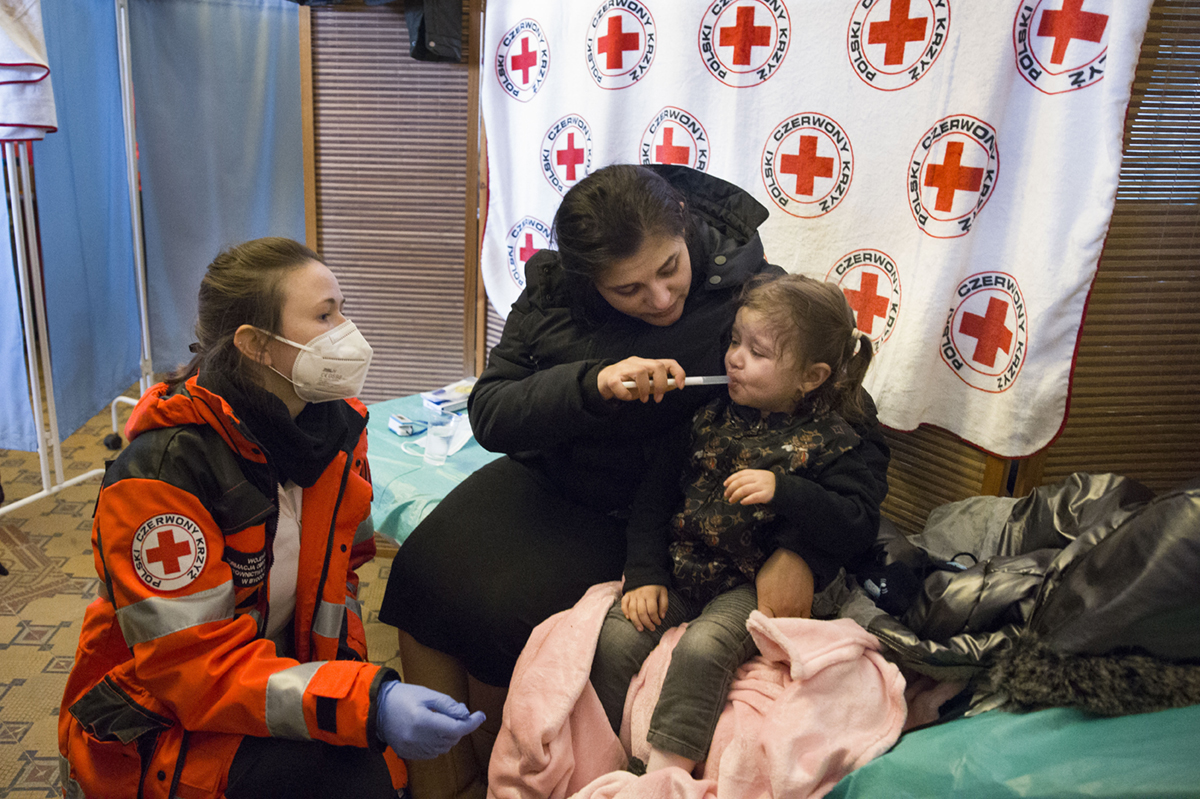Reading time 9 minutes

Humanity
The Red Cross wants to prevent and alleviate the suffering of people, out of respect for every human being. We strive for tolerance, friendship and cooperation and for lasting peace between people. Based on the principle of humanitarianism, the organisation creates a space where people in need, voluntary aid workers and donors can come together and give substance to the responsibility we all have to help others.
Reading time 9 minutes
Humanitarianism is not the same thing as liking each other
Humanitarianism is seen as the first and most important principle of the Red Cross. It is the foundation from which all other founding principles stem and the driving force behind the International Red Cross movement. Humanitarianism is about the respect we feel for our fellow man. It rises above individual feelings.
As human beings, we are all connected to each other. If we feel respect for our fellow man, we can also treat each other with respect.
"There are often all kinds of misconceptions about humanitarianism," says Jan Tijmen Ninck Blok, senior legal advisor on humanitarian law (HOR) at the Red Cross. "It's not about loving everyone else or embracing each other." In fact," says Jan Tijmen, "you don't even have to like each other to help each other. Humanitarianism is about wanting to do the best for humanity and contributing something to the collective. It rises above individual feelings.
Origin
The concept of humanitarianism is important in all forms of religion, philosophy and spirituality. For the Red Cross, it became meaningful on the battlefield of Solferino in 1859. After seeing all the atrocities, Henry Dunant decided to help the wounded with the help of the locals. He stressed that all victims should be helped, regardless of which side they were on. Dunant later elaborated on this thought in a book that led to the establishment of the Red Cross. One of the topics was how to help victims in a neutral way.
According to Tessa Beeloo, national coordinator for humanitarian law of the Red Cross, Jean Pictet was also concerned with the interpretation of humanitarianism. He was an expert on international humanitarian law and a former vice-president of the International Red Cross. Pictet formulated the principle of humanitarianism for the first time in 1955. He then described it as follows: the Red Cross is fighting against suffering and death. It demands that human beings be treated humanely in all circumstances' National associations are allowed to give their own interpretation to the translation of the Fundamental Principles, according to Tessa. Although the core of the idea has remained the same all these years.

Ideal larger than actions
What makes humanitarianism such an important principle for the Red Cross? According to Pictet, it ensured that the ideal of the organisation was greater than its actions alone. Indeed, the global emergency response campaigns are not limited to helping and protecting people in need. They also give rise to more respect for the life, freedom and happiness of other people. Basically, we want humanity to do well.
According to Tessa, this principle guides how we carry out our work at the Red Cross. For example, it makes you put aside your political opinions or preferences in order to help others. Even if that goes against everything you stand for. It may happen that as an aid worker you are deployed during a demonstration in favour of something you personally do not agree with.
There have been occasions when volunteers did not want to participate in a demonstration of a certain political party. "Yet helping at such a time does not mean supporting that political party," says Tessa. "With your effort, you help society. I am a human being, you are a human being. You don't have to give up your political opinions, but you do have to separate them from your work."
Refusing a posting because you don't agree with something goes against the principle of humanitarianism. Nevertheless, it sometimes happens that objections are raised. In that case, it is good to talk to each other. Tessa: "If someone really doesn't want to do a certain posting, then we talk about it and I explain what the Red Cross stands for and how it works. In most cases, people understand that."
“Doing the best for the collective”

Respect and connection
The role of Tessa and Jan Tijmen in HOR is to guard the principles such as humanitarianism, impartiality and neutrality. But how do you foster humanitarianism? For example, by looking closely at how this concept is reflected in our policies. As the Red Cross, we do not do business with certain industries, such as the alcohol and tobacco industry.
Tessa: "With the fighting in Ukraine, it is important that we, the Red Cross, offer our help to all those affected by the conflict. We are not concerned with which side someone is on. If someone is injured, that person needs help and that is what we stand for. In addition, HOR continues to take a critical look at the emergency assistance we provide. What kind of help do we offer and is it the help that is needed by the people we help? In the end, it is always about respect for one's fellow man, and connection. And to ask the question: does someone need help and does he or she want to be helped."